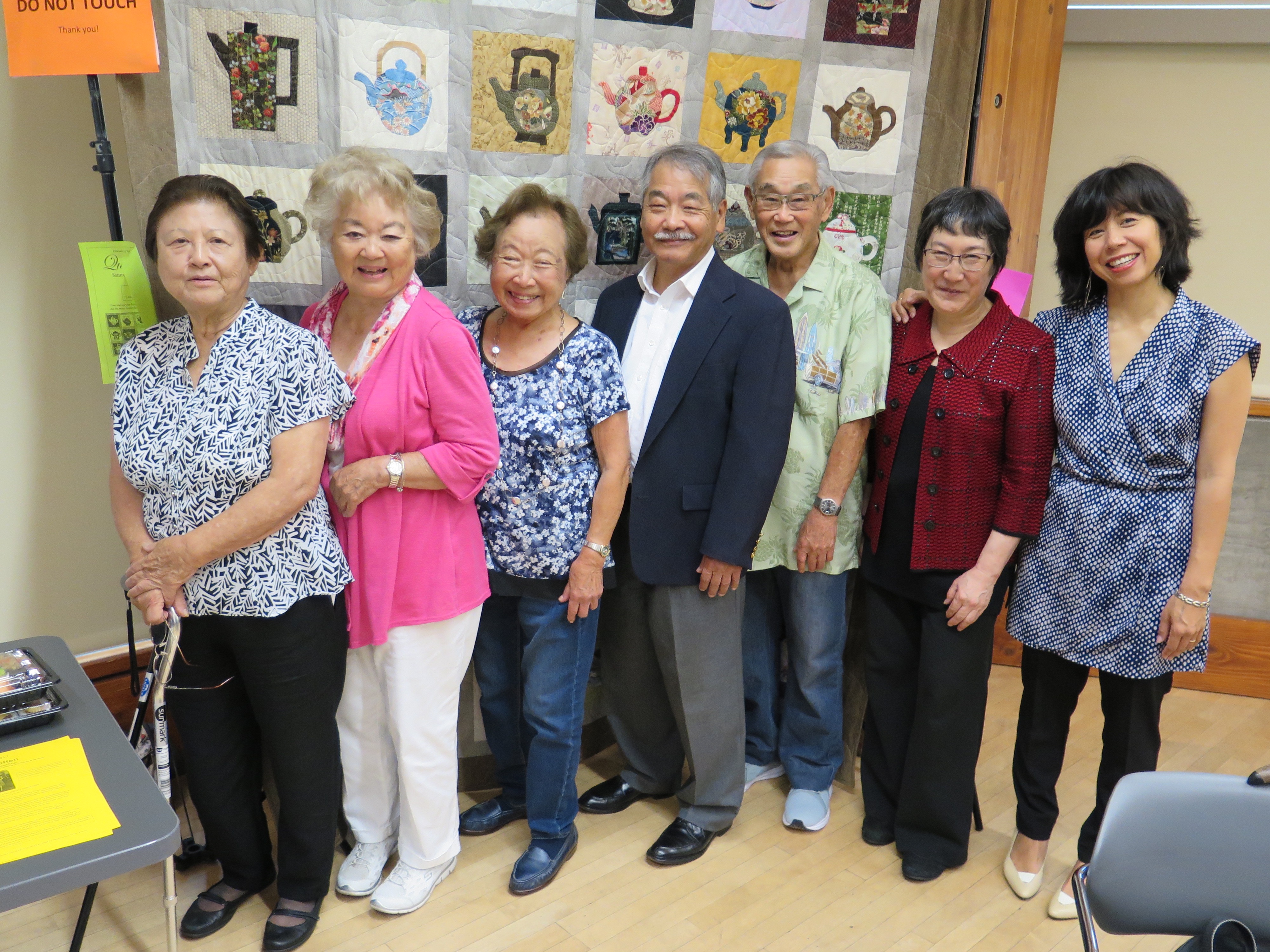Daniela Jungova is the Development & Communications associate at Calvary Women’s Services, the award-winning organization that empowers homeless women in Washington, D.C., to transform their lives through housing, health, education, and employment programs. She feels lucky to have had the opportunity to witness the inspiration that poetry offers to women overcoming homelessness.
“Poetry is people conveying their dreams through words,” mused Sonja Berry, who attended all three of the Echoes in These Streets poetry readings at Calvary Women’s Services—an award-winning organization empowering homeless women in Washington, D.C.
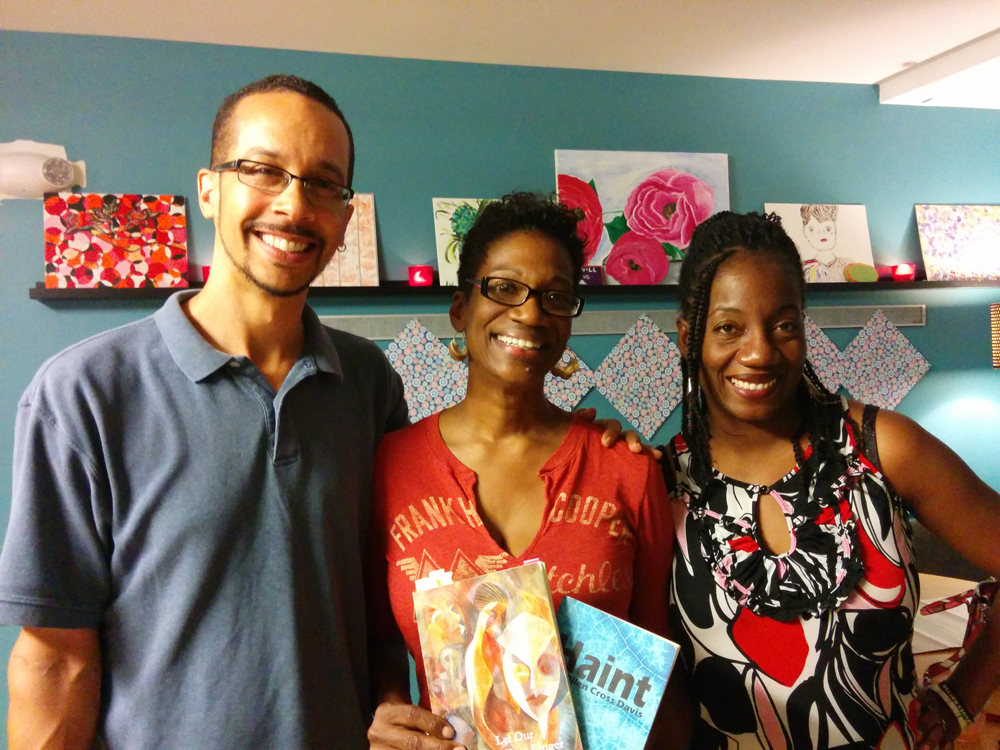 The P&W–supported reading series took place over the course of three beautiful summer Sundays (July 9, 16 and 30) and featured five outstanding poets from the D.C. area—Teri Ellen Cross Davis, Hayes Davis, Katherine McCord, Saundra Rose Maley, and Nancy Arbuthnot. The poets were selected for their cultural relevancy, as well as the ability to connect with diverse populations—the majority of women living at Calvary are survivors of domestic violence, are learning to manage a mental illness, and/or are in recovery from substance abuse.
The P&W–supported reading series took place over the course of three beautiful summer Sundays (July 9, 16 and 30) and featured five outstanding poets from the D.C. area—Teri Ellen Cross Davis, Hayes Davis, Katherine McCord, Saundra Rose Maley, and Nancy Arbuthnot. The poets were selected for their cultural relevancy, as well as the ability to connect with diverse populations—the majority of women living at Calvary are survivors of domestic violence, are learning to manage a mental illness, and/or are in recovery from substance abuse.
For many women facing similar challenges, closing up to the world is an easy way to cope. Berry, who came to Calvary four months ago, says that the poets’ openness was a true gift: “Seeing the poets describe reality in metaphors made me feel inspired, and, well, curious.”
Indeed, all five of the presenting poets got quite personal. Their poems tackled issues such as ordinary life, identity, depression, stereotypes, fatherhood, even breastfeeding. Some delivered their works boldly, fearlessly offering their musings to the world. Others invited the audience to an intimate conversation, softly whispering as if to a best friend. All of them though, voiced their inner thoughts in a genuine and relatable way.
Hayes Davis wrote in his piece “Musings”: “One myth that’s part truth / is men don’t always share sadness that rests / on a foundation of vulnerability.” In “Gaze,” Teri Ellen Cross Davis wrote: “Standing, I name myself / shedding the fiction of availability / becoming nonfiction.” In her piece about islands, Katherine McCord contemplated: “After all, swimming is all / luck. We have no gills / and islands are all light. / Escape that.” Saundra Rose Maley described a hot summer night scene in “First Blues”: “Televisions gone bleary / blinked / in front of men / in undershirts drinking beer.” In “Song,” Nancy Arbuthnot observed: “The best things are nearest / breath, light, flowers / the path just before you.”
Arbuthnot, a poetry teacher at the Naval Academy and longtime volunteer at Calvary Women’s Services, says most of her poems, like the one above, explore everyday life, spirituality, and the way we confront major life issues. Perhaps that’s why her poems resonated so strongly with women at Calvary. She feels the same way about them: “Echoes in These Streets was held on Sundays, and attendance was voluntary. The women who showed up were clearly very interested. They were an incredibly receptive audience, which is what every poet certainly appreciates. It’s been delightful—it made me wonder who really is giving and who is gaining.”
Echoes in These Streets brought much joy and inspiration to women at Calvary, who have long enjoyed experimenting with their own creative abilities. Even though the reading series is over, women at Calvary will have the support they need no matter what artistic endeavor they decide to undertake in the future—Calvary’s literacy and arts program, LEAP, runs year-round and is designed to empower women in understanding and using their own talents and strengths.
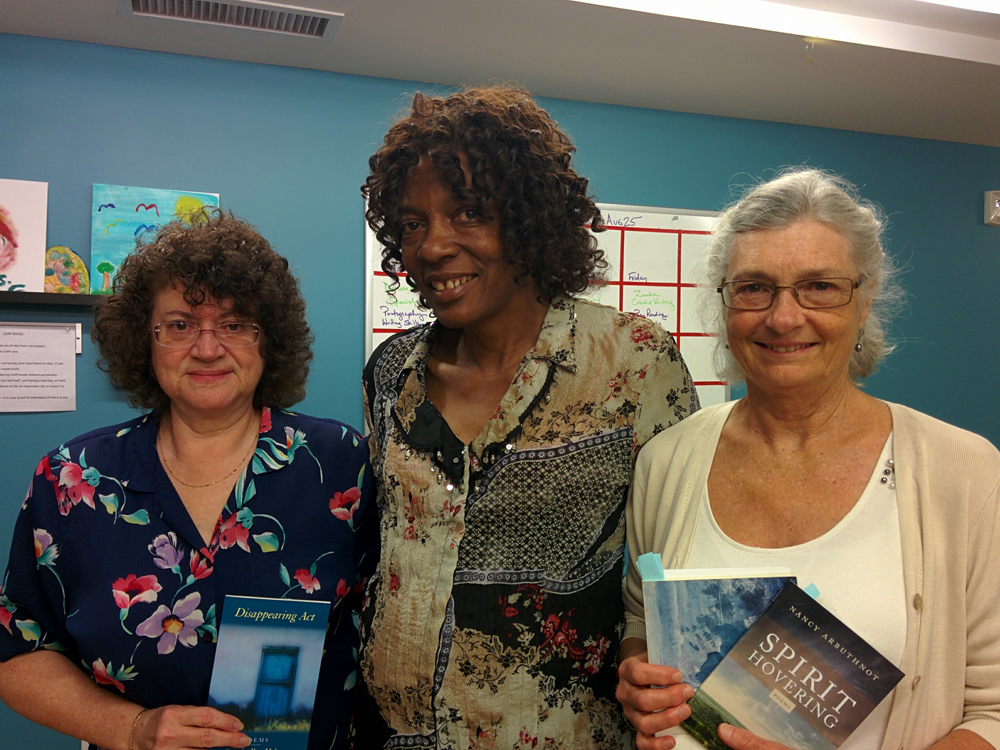 Elaine Johnson, who coordinates LEAP and witnesses women’s artistic sides firsthand, noted: “Echoes in These Streets deepened women’s relationship with writing. At the last session, the women were discussing the idea of continuing to meet on Sunday evenings to share and discuss their own poetry—and I see that as evidence of the lasting effect of the series!”
Elaine Johnson, who coordinates LEAP and witnesses women’s artistic sides firsthand, noted: “Echoes in These Streets deepened women’s relationship with writing. At the last session, the women were discussing the idea of continuing to meet on Sunday evenings to share and discuss their own poetry—and I see that as evidence of the lasting effect of the series!”
Nancy Arbuthnot agrees: “I think it’s really great that Poets & Writers makes it possible for poets to go out to communities like Calvary. Echoes in These Streets clearly showed that the audience and poets alike benefit from these readings.”
The staff and residents of Calvary Women’s Services would like to thank everyone who participated in the readings and savored poetry as a tool for self-expression, empowerment, and acceptance. A sincere thank you also goes to Poets & Writers who made it possible for the five brilliant poets to present their work to women at Calvary. There is no way these three wonderful evenings would have been possible without your generous support. Here at Calvary, your gift of poetry will certainly keep on giving.
Support for Readings & Workshops in Washington, D.C. is provided by an endowment established with generous contributions from the Poets & Writers Board of Directors and others. Additional support comes from the Friends of Poets & Writers.
Photos: (top) Hayes Davis, Sonja Berry, and Teri Ellen Cross Davis (Credit: Elaine Johnson). (bottom) Saundra Rose Maley and Nancy Arbuthnot with audience member (Credit: Elaine Johnson).




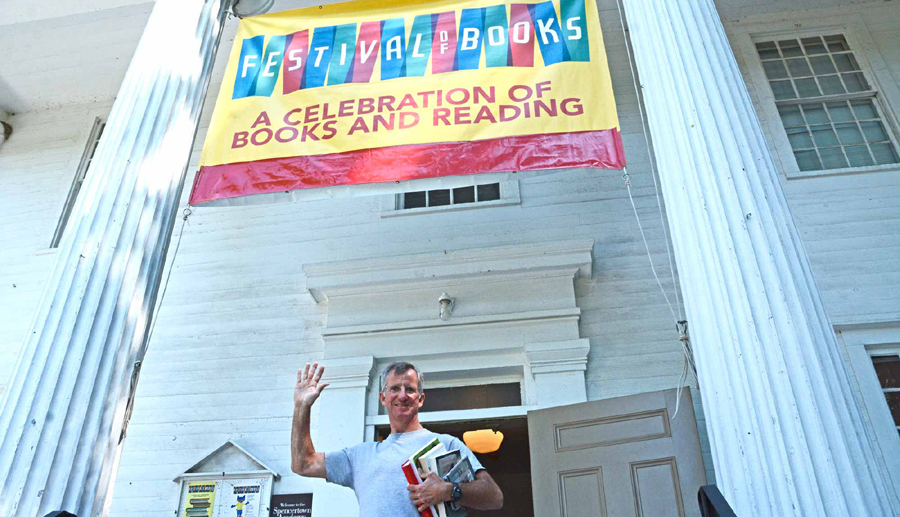
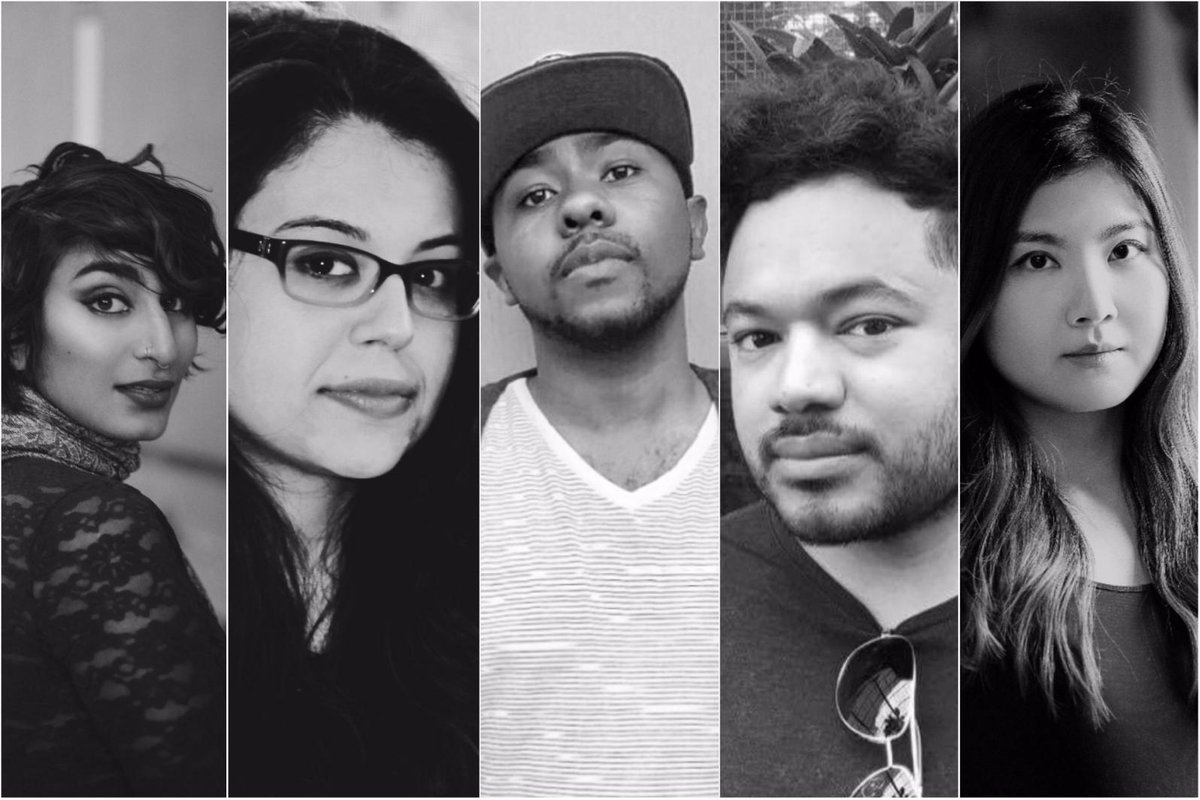
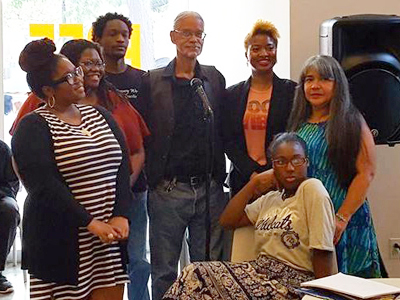 At the beginning of the first in a series of six “Spoken Word 101” workshops at the Bronx Museum of the Arts, I made it clear that I wasn’t going to teach anyone to be a better poet or spoken word artist. We were gathered to support each other as we explored the world of spoken and written word. For inspiration we read and discussed some of the verses of Aja Monet, Charles Bukowski, Nanao Sakaki, Sonia Sanchez, and other authors. Also, every session included the viewing of a YouTube video of these poets reciting their works.
At the beginning of the first in a series of six “Spoken Word 101” workshops at the Bronx Museum of the Arts, I made it clear that I wasn’t going to teach anyone to be a better poet or spoken word artist. We were gathered to support each other as we explored the world of spoken and written word. For inspiration we read and discussed some of the verses of Aja Monet, Charles Bukowski, Nanao Sakaki, Sonia Sanchez, and other authors. Also, every session included the viewing of a YouTube video of these poets reciting their works.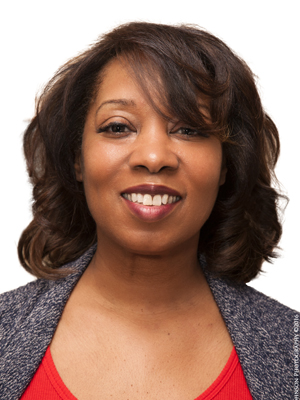 Each time an inner-city job seeker walks through our doors, we see unparalleled treasure. To make sure audiences and employers see it too, we know our job is to deliver light into deep dark places. The voices and stories of our students are buried under life’s toughest circumstances: homelessness, joblessness, abuse, addiction, and military trauma, among others. Our students are adults, often marginalized, fighting to survive and searching for work in the homeless capital of America: Los Angeles.
Each time an inner-city job seeker walks through our doors, we see unparalleled treasure. To make sure audiences and employers see it too, we know our job is to deliver light into deep dark places. The voices and stories of our students are buried under life’s toughest circumstances: homelessness, joblessness, abuse, addiction, and military trauma, among others. Our students are adults, often marginalized, fighting to survive and searching for work in the homeless capital of America: Los Angeles. In our classes, it is common to have students who have been rendered mute by the brutal blows they’ve faced, and Norma was no exception. A middle class woman hurled into silence and homelessness by domestic violence, she’d lost her will months before we met. Norma said, “I was preparing to take my life but this class opened my heart to see beyond my darkness and despair and showed me the greatness that was always there. Now I use my voice in the service of others like me. I use my talent to create change.”
In our classes, it is common to have students who have been rendered mute by the brutal blows they’ve faced, and Norma was no exception. A middle class woman hurled into silence and homelessness by domestic violence, she’d lost her will months before we met. Norma said, “I was preparing to take my life but this class opened my heart to see beyond my darkness and despair and showed me the greatness that was always there. Now I use my voice in the service of others like me. I use my talent to create change.”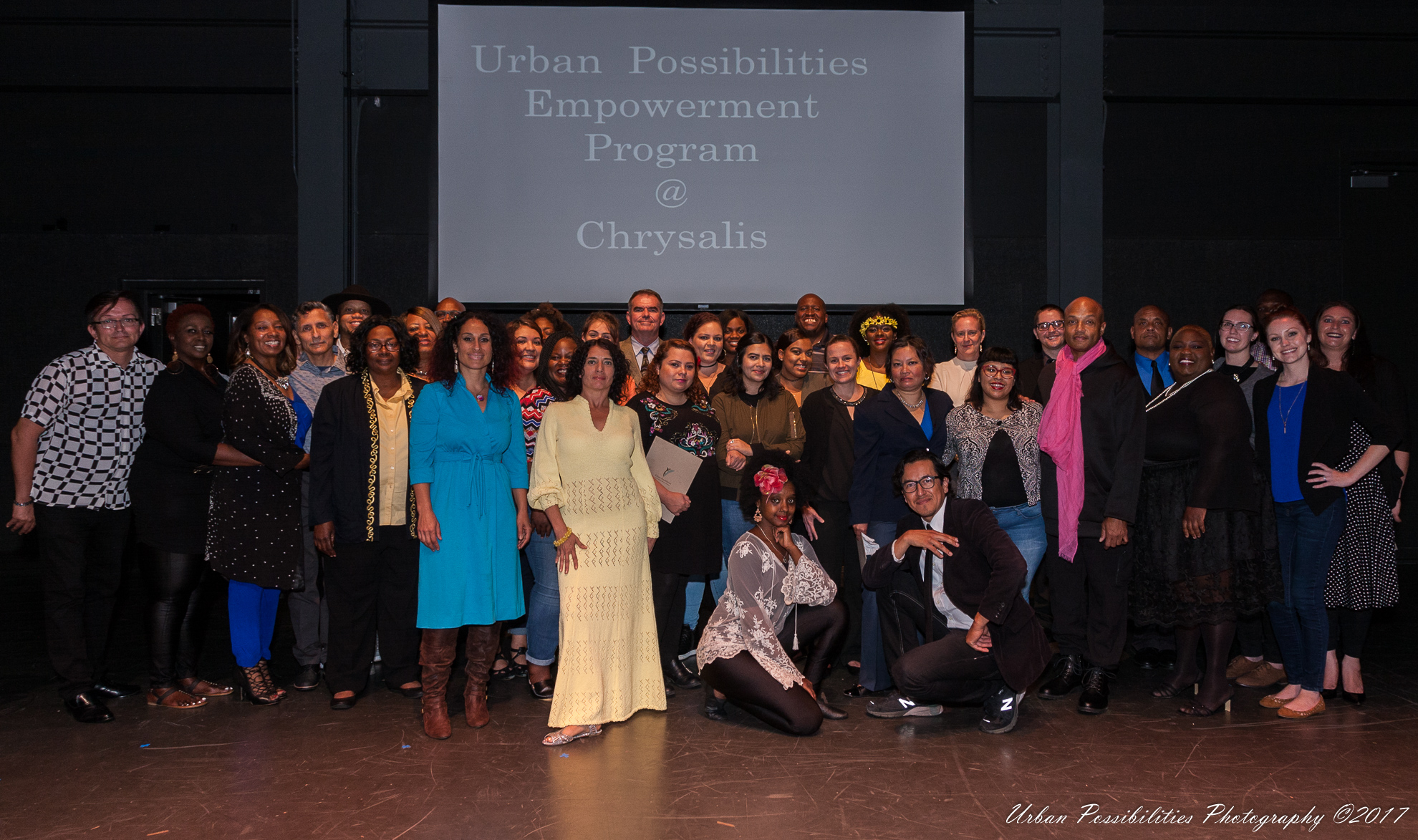
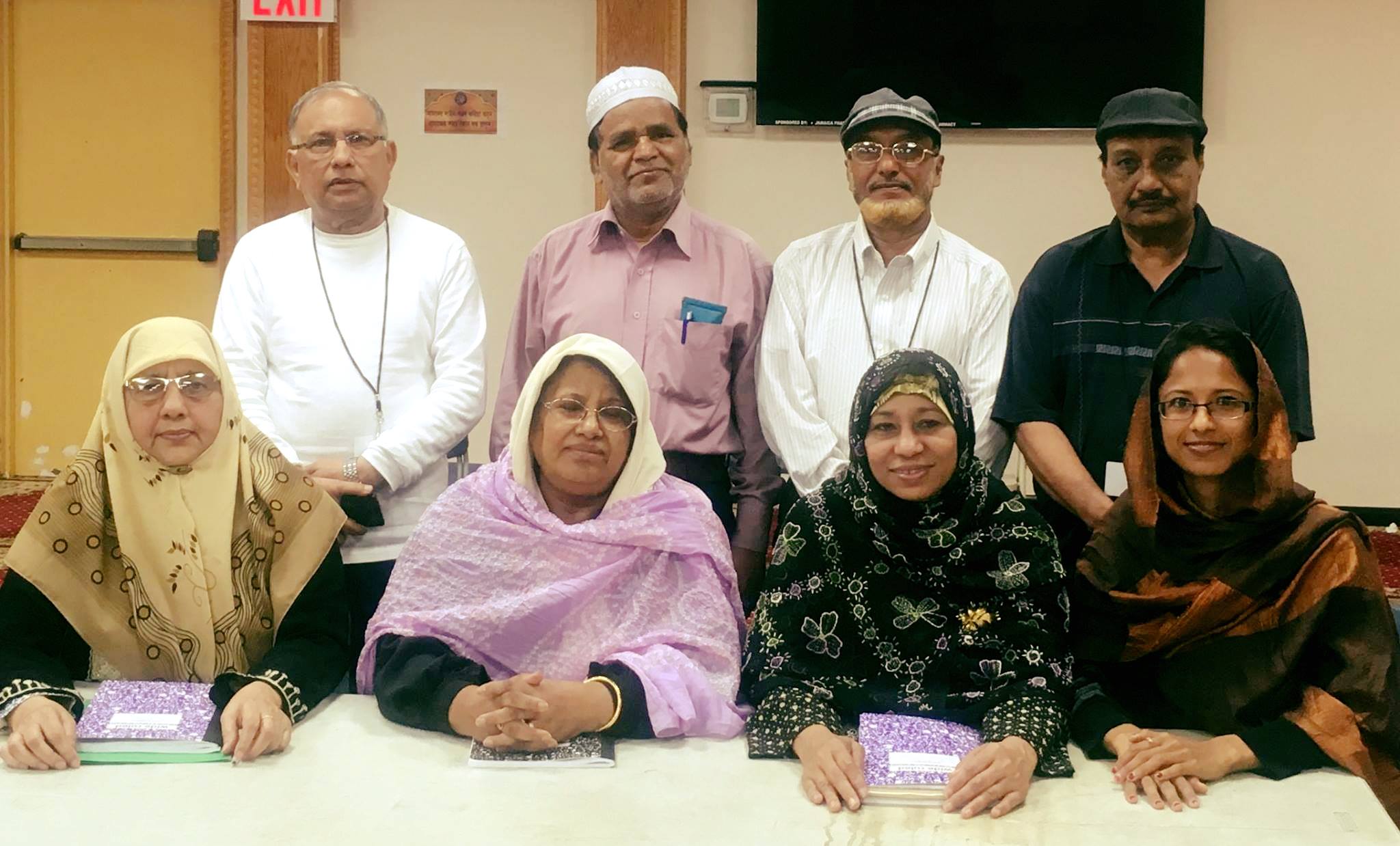
 The P&W–supported reading series took place over the course of three beautiful summer Sundays (July 9, 16 and 30) and featured five outstanding poets from the D.C. area—Teri Ellen Cross Davis, Hayes Davis, Katherine McCord, Saundra Rose Maley, and Nancy Arbuthnot. The poets were selected for their cultural relevancy, as well as the ability to connect with diverse populations—the majority of women living at Calvary are survivors of domestic violence, are learning to manage a mental illness, and/or are in recovery from substance abuse.
The P&W–supported reading series took place over the course of three beautiful summer Sundays (July 9, 16 and 30) and featured five outstanding poets from the D.C. area—Teri Ellen Cross Davis, Hayes Davis, Katherine McCord, Saundra Rose Maley, and Nancy Arbuthnot. The poets were selected for their cultural relevancy, as well as the ability to connect with diverse populations—the majority of women living at Calvary are survivors of domestic violence, are learning to manage a mental illness, and/or are in recovery from substance abuse. Elaine Johnson, who coordinates LEAP and witnesses women’s artistic sides firsthand, noted: “Echoes in These Streets deepened women’s relationship with writing. At the last session, the women were discussing the idea of continuing to meet on Sunday evenings to share and discuss their own poetry—and I see that as evidence of the lasting effect of the series!”
Elaine Johnson, who coordinates LEAP and witnesses women’s artistic sides firsthand, noted: “Echoes in These Streets deepened women’s relationship with writing. At the last session, the women were discussing the idea of continuing to meet on Sunday evenings to share and discuss their own poetry—and I see that as evidence of the lasting effect of the series!”
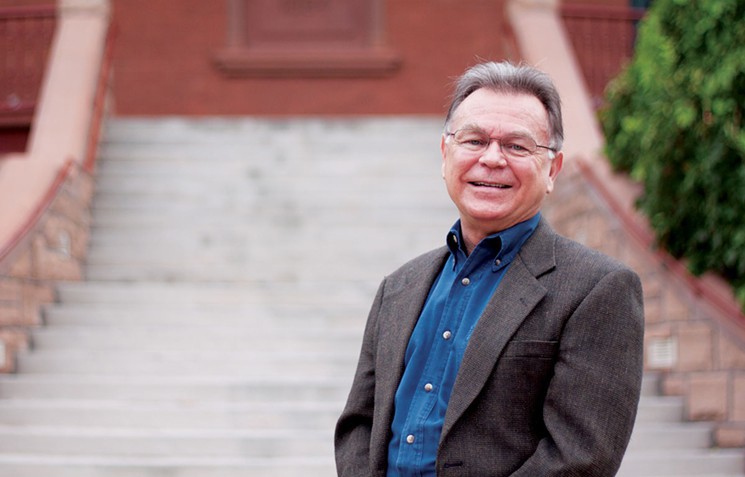
 In late 2016, I received an invitation to lead a workshop for first-time writers. Sponsored by the Friends of the Little Tokyo Branch of the Los Angeles Public Library and Poets & Writers, the four-part program targeted second-generation Americans of Japanese descent, the Nisei.
In late 2016, I received an invitation to lead a workshop for first-time writers. Sponsored by the Friends of the Little Tokyo Branch of the Los Angeles Public Library and Poets & Writers, the four-part program targeted second-generation Americans of Japanese descent, the Nisei.